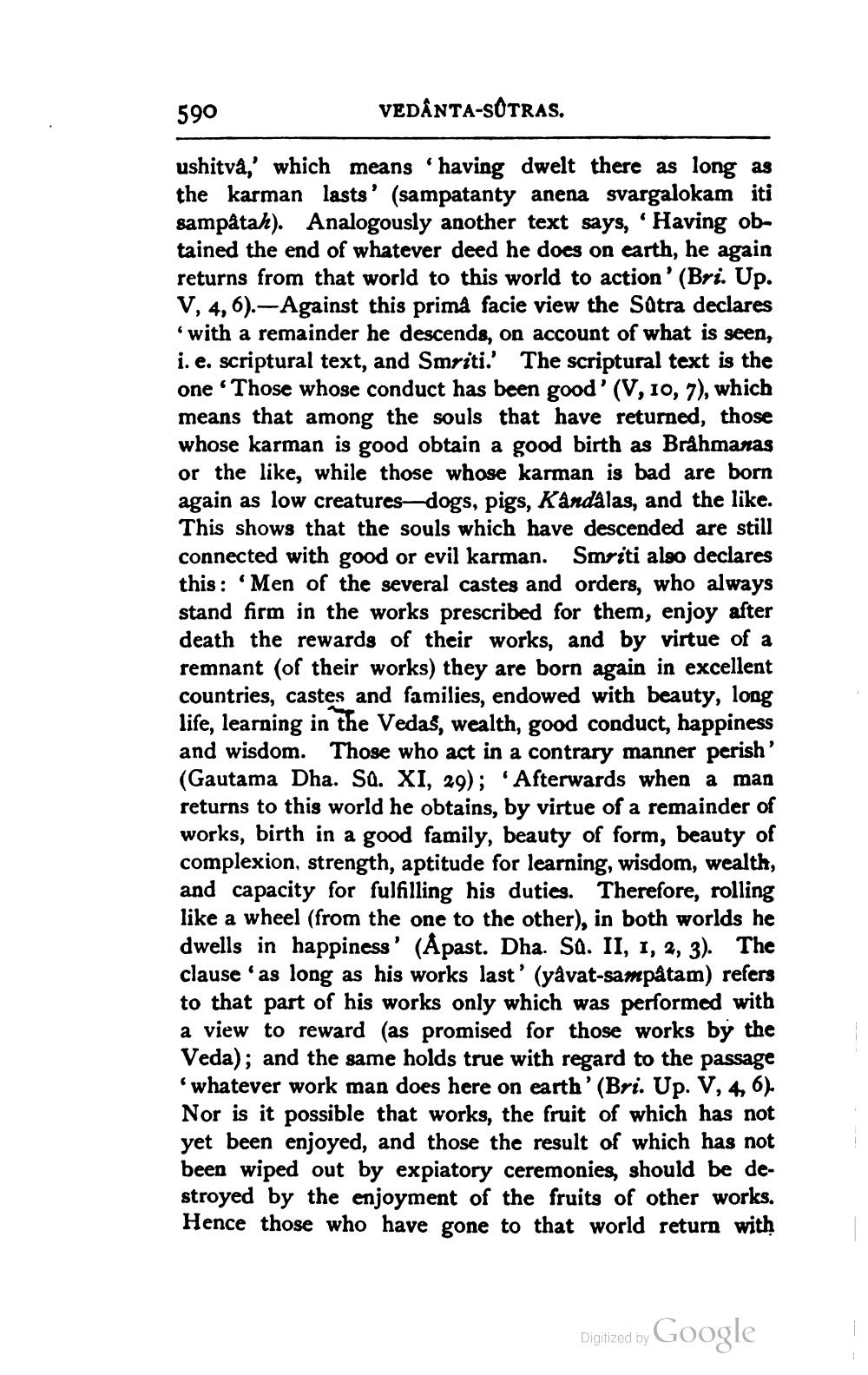________________
590
VEDANTA-SUTRAS.
ushitvâ,' which means 'having dwelt there as long as the karman lasts' (sampatanty anena svargalokam iti sampâtah). Analogously another text says, 'Having obtained the end of whatever deed he does on earth, he again returns from that world to this world to action' (Bri. Up. V, 4, 6).-Against this primâ facie view the Sûtra declares 'with a remainder he descends, on account of what is seen, i. e. scriptural text, and Smriti.' The scriptural text is the one 'Those whose conduct has been good' (V, 10, 7), which means that among the souls that have returned, those whose karman is good obtain a good birth as Brahmanas or the like, while those whose karman is bad are born again as low creatures-dogs, pigs, Kândalas, and the like. This shows that the souls which have descended are still connected with good or evil karman. Smriti also declares this: 'Men of the several castes and orders, who always stand firm in the works prescribed for them, enjoy after death the rewards of their works, and by virtue of a remnant (of their works) they are born again in excellent countries, castes and families, endowed with beauty, long life, learning in the Vedas, wealth, good conduct, happiness and wisdom. Those who act in a contrary manner perish' (Gautama Dha. Sû. XI, 29); 'Afterwards when a man returns to this world he obtains, by virtue of a remainder of works, birth in a good family, beauty of form, beauty of complexion, strength, aptitude for learning, wisdom, wealth, and capacity for fulfilling his duties. Therefore, rolling like a wheel (from the one to the other), in both worlds he dwells in happiness' (Åpast. Dha. Sû. II, 1, 2, 3). The clause 'as long as his works last' (yâvat-sampâtam) refers to that part of his works only which was performed with a view to reward (as promised for those works by the Veda); and the same holds true with regard to the passage 'whatever work man does here on earth' (Bri. Up. V, 4, 6). Nor is it possible that works, the fruit of which has not yet been enjoyed, and those the result of which has not been wiped out by expiatory ceremonies, should be destroyed by the enjoyment of the fruits of other works. Hence those who have gone to that world return with
Digitized by Google




